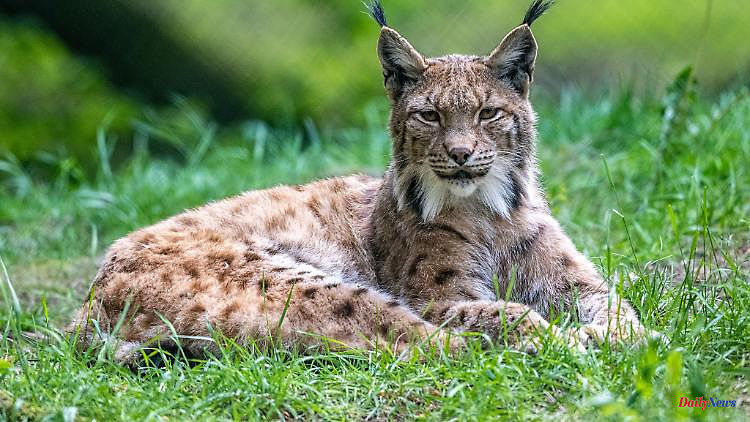Munich (dpa / lby) - With the cross-border project "Tatort Luchs" nature conservation organizations want to fight lynx poaching. On the day of the lynx (June 11), the WWF and the association "Luchs Bayern" announced their cooperation with the Czech organization Hnutí DUHA and the University of Bremen. Up to 25 percent of lynxes in Bavaria are poached, the WWF and "Luchs Bayern" announced on Friday, referring to a study from 2018. "If poaching continues on this scale, the lynx population in the border area between Germany and the Czech Republic could be extinct in 100 years." The big cats would be poisoned, shot or killed and are therefore still threatened in this country.
The "Tatort Luchs" project team wants to train rangers, officials, prosecutors and judges to improve the investigation of poaching-related crimes and increase the conviction rate. A manual is to be developed. According to the information, the Federal Environment Ministry is supporting the project with funds from the EURENI program (European Environment Initiative).
According to the WWF and "Luchs Bayern", 13 adult, resident lynxes disappeared between 2018 and 2019 in the Bavaria-Bohemia border area and two big cats were demonstrably killed. That corresponds to a total of a quarter of the adult lynx population in the area. The missing lynx may have fallen victim to poachers, it said. "Particularly bitter: Although so many lynxes have been killed illegally, and this has been proven, not a single perpetrator has been convicted. This shows how urgently our project to protect lynxes is here in Bavaria," said Moritz Klose, WWF -Head of Wildlife Germany.
In autumn 2019, a hunter was fined by the Cham district court for illegally killing a lynx in 2014. In the appeal process before the Regional Court of Regensburg in March 2020, the proceedings for violating the Nature Conservation Act were discontinued because the exact time of the crime could no longer be proven and it was therefore possibly statute-barred.












